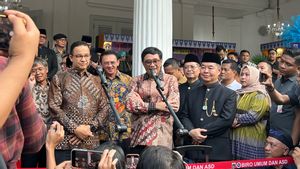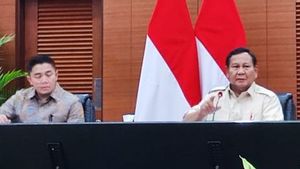YOGYAKARTA For business people, the term ISO may be familiar to their ears. ISO is related to standardization. Its existence is quite important, especially related to international trade. The following summarizes related to ISO.
In general, ISO is an international non-profit outside the government (Non-Government Organization/NGO) which has the authority to set standards in the industrial sector.
This organization exists and consists of many countries, but is integrated internationally.
ISO was founded on February 23, 1947 in Geneva, Switzerland. After PD II, in 1946 to be precise, as many as 65 delegates from 25 countries gathered in London. They discussed the future of the standardization and importance of the world body governing the standardization. The ISO institution was then formed in 1947 with 67 technical committees.
The ISO extension in fact is the International Organization for Standardization. However, the name of the institution is different because it is filled with many countries with different languages. ISO is known as IOS in English, while in French it is known as OIN.
But the parent organization chose the name ISO. The word ISO is taken from the word in Greek, namely Isos which means the same or equal. Simply put, this institution sets the standards for many things in the world's industrial and commercial fields.
Quoted from its official website, ISO members are 167 national standard bodies that help unite experts to share knowledge and develop International Standards relevant to markets, consensus-based, and voluntary companies that support innovation and provide solutions to global challenges.
As mentioned earlier, the ISO agency relates to international standardization for various fields. Several predetermined standards such as business card sizes, bank ATM card sizes, thick paper sold in various countries, and many more. Practically, the benefits of ISO are as follows.
How ISO institutions work to set standards is quite long. Initially they will invite representatives from 130 countries to sit on the Technical Committee (TC), Sub Committee (SC), and Working Group (WG). It is also followed by national standards bodies of each country and large companies working in the industry that are being discussed. From there, the standardization of a thing can be determined.
Despite working outside the government, the ISO decision is absolute and has legal force. That way ISO is closely related to government and large companies in every country.
Until now, there are several types of ISO that are benchmarks in many ways. In fact, many companies in Indonesia have implemented ISO according to the field involved, namely the following.
That's information related to what ISO is. To get other interesting information, visit VOI.ID.
The English, Chinese, Japanese, Arabic, and French versions are automatically generated by the AI. So there may still be inaccuracies in translating, please always see Indonesian as our main language. (system supported by DigitalSiber.id)













